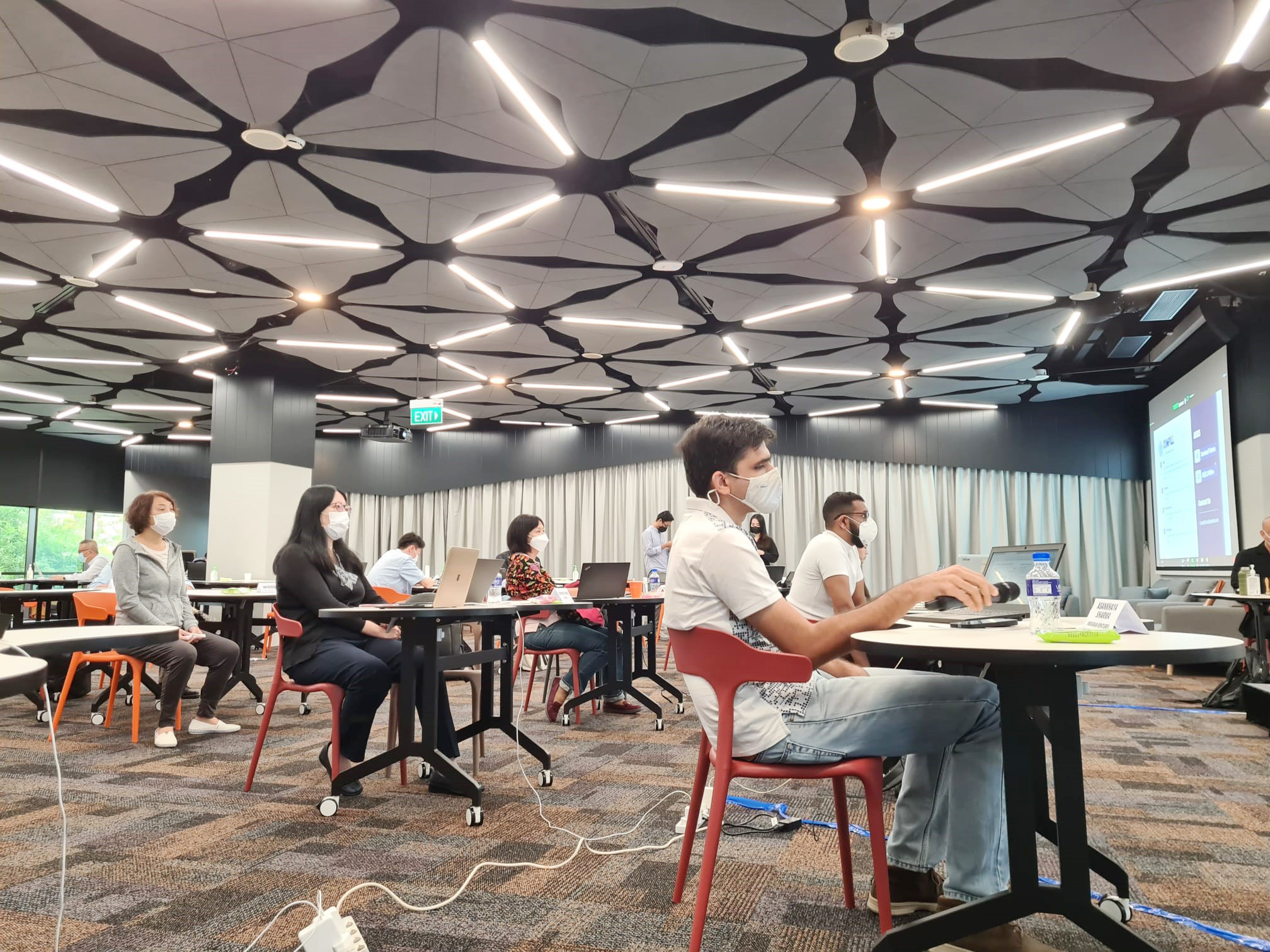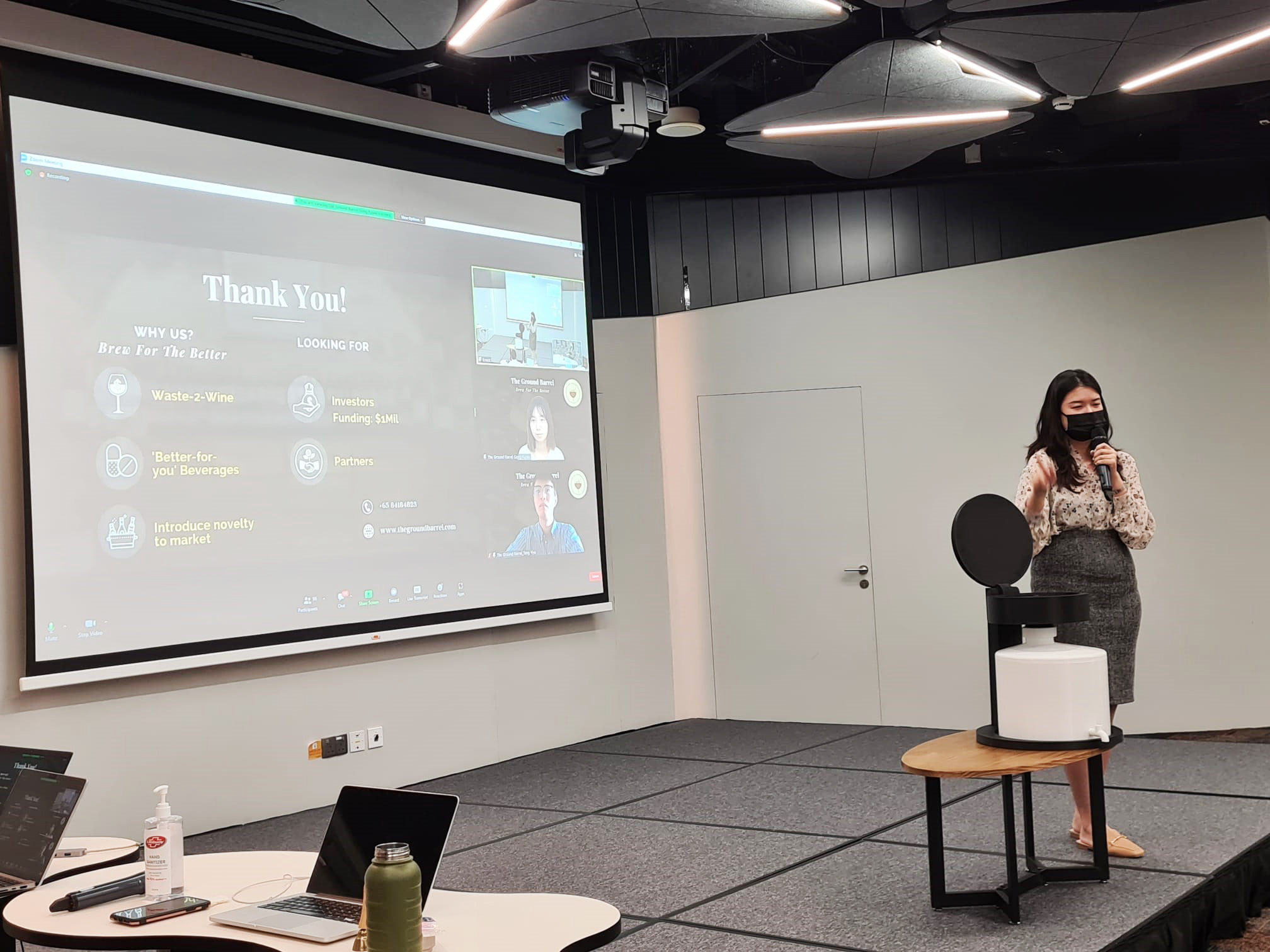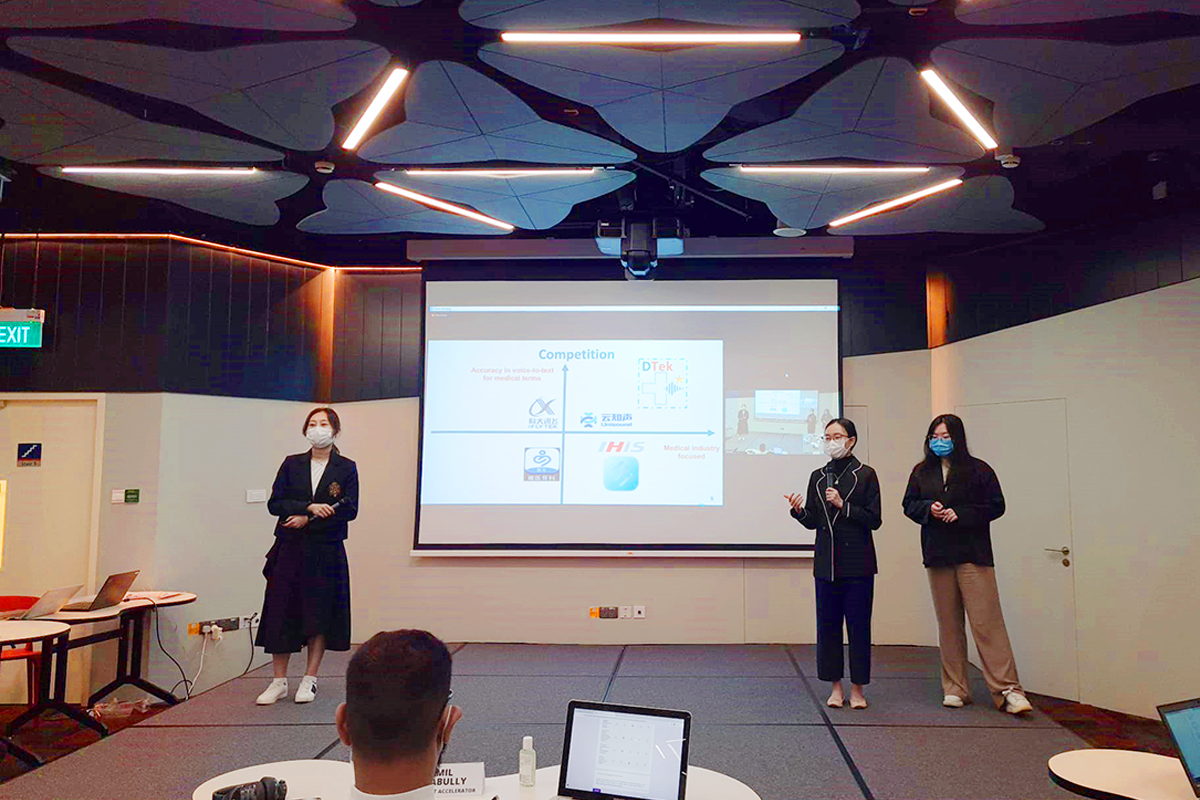Students in the National University of Singapore (NUS) Masters in Science (MSc) in Venture Creation programme recently got a chance to develop a start-up idea and pitch it to a group of investors, venture capitalists and venture builders. A panel of judges comprising Venture Managers from the NUS Graduate Research Innovation Programme (GRIP), investment firm managers, as well as angel investors evaluated the proposals as the teams of students presented their ideas and participated in a question-and-answer session with the judges.
A total of 119 students, guided by 26 mentors, pitched 39 start-up proposals at the two-day event, delving into diverse areas such as food technology, e-commerce, healthcare and ergonomics, and event-planning systems driven by artificial intelligence.
Making the Pitch
The proposals were developed over six months in the Lean Startup Practicum, which is the final compulsory module for MSc in Venture Creation students before they graduate.
Mentors like Dominic Chow, Chief Operating Officer of an asset management firm, guided the teams in developing their start-up concepts, as the students conducted field studies, research and interviews during the practicum.
Having been a mentor for several years now, Dominic said his continued participation has made him feel refreshed due to the youthful energy and passions that the students bring to the table. He shared that he felt personally invested in all the students’ success (not only those teams he mentored), and pointed out that all the teams had performed admirably when facing the panel of judges during Demo Day—even those that had struggled during rehearsals.
Each team of students were given seven minutes to pitch its proposal to a panel of judges, followed by a twelve minute question-and-answer session. No stone was left unturned as the judges fielded questions on possible competitors, existing competitors within the industry and current market trends.
Some judges zoomed in on market strategy, while others looked for concretely developed and well-researched proposals. A few judges shared that they were focusing on the teams’ presentation skills, confidence, honesty in acknowledging gaps in their presentation and active appeals to the judges’ emotions.
 Judges listening intently to teams as they pitch their start-up ideas.
Judges listening intently to teams as they pitch their start-up ideas.
One Step Forward
Demo Day gave the students an opportunity to put everything that they had learnt into practice; showcasing their start-up pitches and receiving feedback from the industry experts as well as seasoned investors.
This time around, more than a third of the teams received a Letter of Intent from organisations or businesses, expressing a preliminary commitment to work with the teams on their proposed start-up ideas. Fifteen out of the 39 teams made use of existing NUS intellectual property (IP) and commercialised them into ventures for tomorrow.
Team “The Ground Barrel”, for example, tapped on an NUS IP to develop alcoholic beverages fermented from spent coffee grounds. Nicole Yep, a member of “The Ground Barrel”, revealed that they were able to identify this niche product because the programme allowed her team to connect with subject matter experts and potential customers for their product. This allowed them to analyse their product and gain insights into its viability. She shared that her team felt a sense of achievement when they received the green light to develop their product.
 Nicole Yep from team “The Ground Barrel” presenting onstage while her teammates present remotely.
Nicole Yep from team “The Ground Barrel” presenting onstage while her teammates present remotely.
Joanna Lee, a member of team “bLink”, also took great pride in her team’s efforts. They had experienced many ups and downs to get to this point, and being able to present their work to the judges on Demo Day was an affirmation that their efforts and tenacity were worthwhile. As Demo Day wound to a close, Joanna acknowledged the effort put in by all the parties to help the students learn and grow through the programme.
“We could not have made it this far—both in technical and emotional terms—without the support of our mentors and the programme team,” she said.
The same sentiment resounded among other participants, with team “DTek” sharing that they were extremely appreciative of the dedicated guidance provided by the mentors and programme faculty.
 Team “DTek” presenting their start-up pitch, a productivity app to help simplify the process of writing medical records.
Team “DTek” presenting their start-up pitch, a productivity app to help simplify the process of writing medical records.
While the end of Demo Day marks a milestone for the MSc in Venture Creation students, it also represents a starting point for these budding entrepreneurs as they seek to carve out their careers in their chosen fields. Equipped with the experience gained from the programme; the students are more prepared to tackle the challenges that the future will bring.
To find out more about the MSc in Venture Creation programme and learn how it can prepare you to achieve your own start-up aspirations, visit the programme web page here.